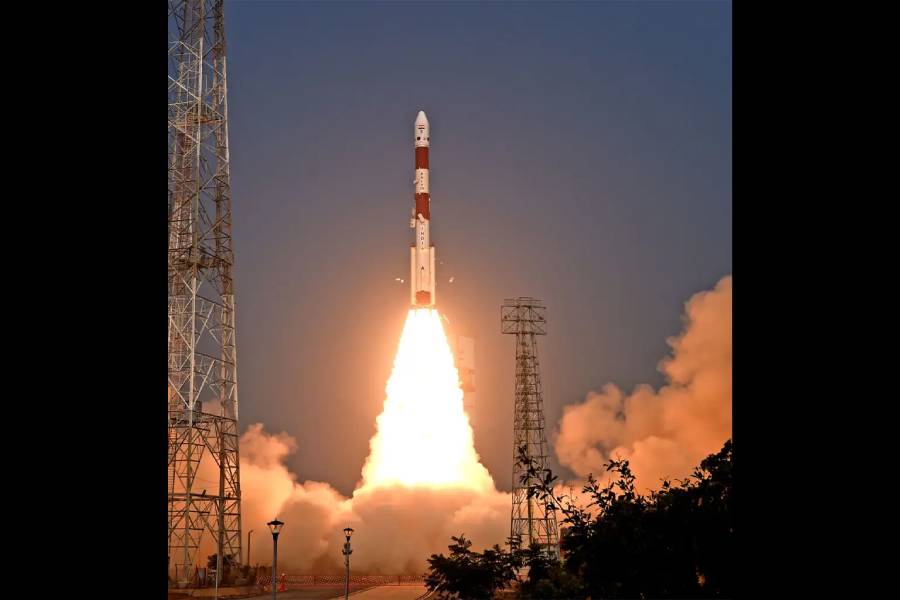Every dollar spent by the Indian government on the country’s space programme over the past decade has yielded a more than four-fold return measured through economic impacts, a private consulting firm said in a report released on Friday.
The impact assessment conducted by Novaspace, an international space sector consulting firm, and commissioned by the Indian Space Research Organisation (Isro), comes amid hopes that the country’s space economy will grow over five-fold to $44 billion by 2032 from $8.4 billion in 2020.
“Isro has made a cumulative investment of $13 billion since 2014 and we estimate the overall economic impacts from the space economy to be $60 billion,” Steve Bochinger, executive adviser with Novaspace said on the sidelines of a space conference in New Delhi.
The assessment has also estimated that the space sector has supported 4.7 million jobs, 16 per cent direct jobs, 43 per cent indirect, and 41 per cent induced. Induced jobs are those created when people spend increased incomes on goods or services.
Satellite-based services, besides supporting telecommunications, weather forecasts, distance education, and telemedicine have helped reduce 20 per cent of aviation fuel consumption and guide some 8 lakh fisherfolks daily, leading to a four-fold increase in fish catch volume, the report said, citing examples of economic impacts. Early satellite-based warnings have saved thousands of lives during cyclones.
Indian space officials, as part of a decadal vision for the space sector, have set a target to expand the national space economy over five fold from $8.4 billion to $44 billion by 2032 and the private sector is expected to drive a significant part of this expansion.
“We’ve seen some encouraging developments,” said Pawan Goenka, the chairman of InSpace, a government entity created to facilitate private enterprise role in the space programme. “The number of startups in the private sector has increased five-fold in five years and private investment in the space sector has grown 20-fold over the past five years — from about $6 million to $130 million this year.
InSpace has received over 150 applications from private entities across different sectors of space activities — from launch vehicles and satellites to instrumentation, V.K. Saraswat, a former chief of defence research and development organisation and currently a member of Niti Aayog, the government’s apex think tank, said in a talk at the space conference.
More than 60 of these are from startups, 10 from small or medium or micro enterprises, 17 from academic institutions and 26 from established companies that have worked with Isro for several years. Officials estimate India now has more than 200 startups in the space sector.










